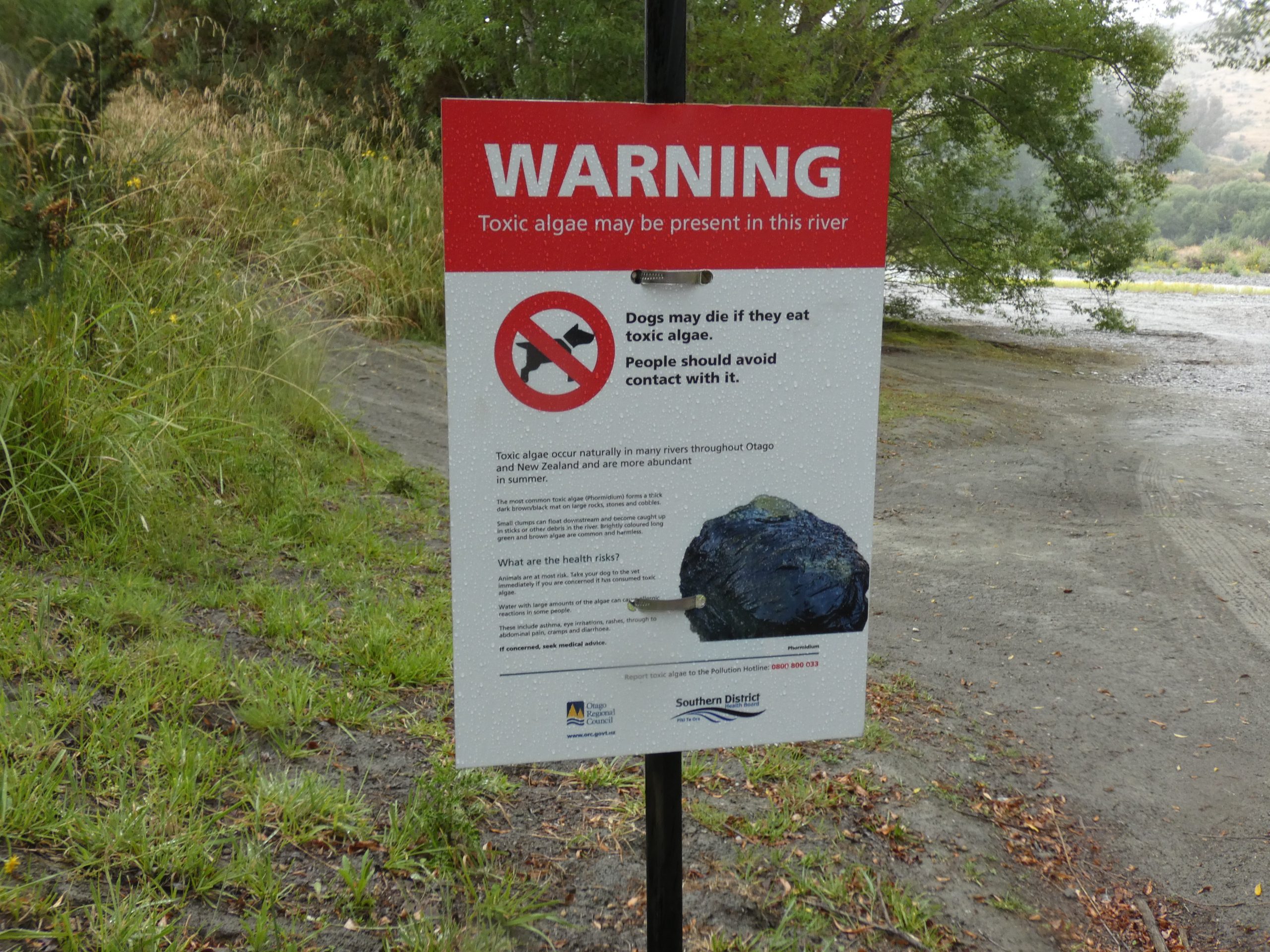Toddlers are particularly at risk from water contaminated with toxic algae bloom, experts said.
Land Air Water Aotearoa (Lawa) advised exposure to high levels of toxins from cyanobacteria may result in serious illness or death in humans. The effects vary from rapid onset of nausea and diarrhoea to, in extreme cases, more serious effects such as liver damage.
Toddlers liked to put things into their mouths and that increased their risk, their small size increased the likelihood of a larger dose of toxin, Lawa warned.
An Alexandra vet believed a dog died from eating toxic algae at the Clutha River, at Roxburgh, over the new year period.
VetEnt veterinarian Erika Benton, of Alexandra, said without a postmortem, she could not confirm that cyanobacteria in the Clutha river was the cause of the death, but all symptoms led her to believe it was.
The dog’s owners rang from the river saying their pet was ‘‘a bit wobbly’’.
By the time Dr Benson saw them 40 minutes later, the dog was unconscious and could not be revived.
It was the first death in her two years at the practice that she was sure was caused by cyanobacteria.
There were other deaths where vets suspected it had been the cause, she said.
People rarely saw their dog eating the algae and the alarm was usually raised when the dog collapsed or was found unconscious, she said.
There was no antidote for cyanobacteria poisoning and even a small amount was fatal, Dr Benson said.
Cromwell family practice doctor Greg White said he was not aware of anyone being affected by toxic algae.
Otago Regional Council senior water quality scientist Rachel Ozanne said the council had visited the Roxburgh site twice last week.
There was no sign of toxic algae then, she said.
However, the samples taken on January 5 showed low levels of phormidium, a type of cyanobacteria, so there could have been toxic algae in the area recently, Ms Ozanne said.
Dogs were at risk even from old or dried mats of toxic algae on the river bank.
‘‘If you see brown or black mats growing on rocks in the river, or smell astrong musty odour from dried out mats of algae on the river bank be careful, keep away and let us know,’’ she said.
Dr Benson said most people were aware of the danger of cyanobacteria and were really good at communicating ‘‘hot spots’’.
The danger increased the longer the dog spent in the water if toxic algae was present.
Report suspected toxic algae sightings to Otago Regional Council pollution hotline 0800 800 033.
Check if it’s safe to swim at orc.govt.nz/managing›our›environment/water/toxic›algae› sightings





